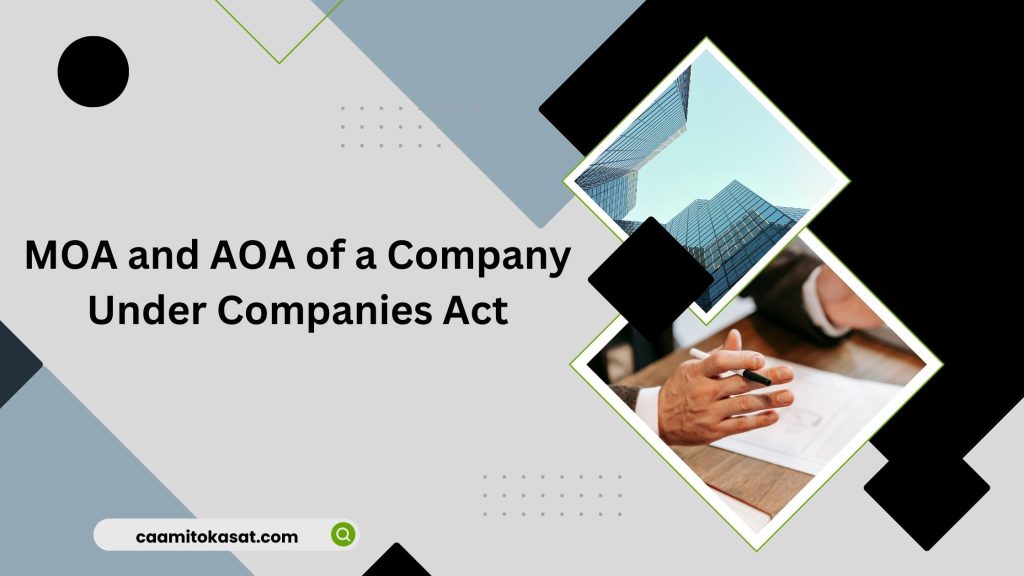The Memorandum of Association (MOA) is a fundamental legal document that outlines the company’s constitution and serves as the blueprint for its structure. Often referred to as the company’s charter, the MOA sets forth the scope of the company’s operations, its objectives, the extent of its powers, and its relationship with the external environment.
Drafting an MOA is the initial step in the process of company registration. During the company formation, all members must subscribe to the MOA, meaning they must sign the document to indicate their agreement and endorsement of its contents. Register your company with us.
Key Clauses of the MOA
An MOA for any company must include the following five essential clauses:
- Name Clause
- Registered Office Clause
- Object Clause
- Liability Clause
- Capital Clause
Articles of Association (AOA) of a Company
The Articles of Association (AOA) is a critical document that sets out the internal rules and regulations governing the company’s operations and management. Subordinate to the MOA, the AOA governs the conduct of business, managing the internal affairs, and defining the rights and duties of the company’s members. The AOA must align with the provisions of the MOA and the Companies Act, 2013.
Key Provisions of the AOA
The AOA typically includes:
- Details about share capital
- Rules on directors’ qualifications, appointments, powers, remuneration, and duties
- Regulations concerning company dividends and reserves
- Guidelines for company accounts and audits
- Provisions related to the company’s borrowing powers
- Procedures for conducting meetings
- Process for winding up the company
Differences Between MOA and AOA
| Aspect | MOA | AOA |
| Description | Defines the company’s constitution, powers, objectives, and limits. | Outlines the rules, regulations, and internal management of the company. |
| Contents | Includes five mandatory clauses. | Contains provisions based on the company’s requirements. |
| Scope | Governs the relationship between the company and external parties. | Governs the relationship between the company and its members, and among the members. |
| Filing Requirement | Mandatory filing with the ROC at the time of registration. | Drafting is mandatory, but filing with the ROC is optional during registration. |
| Position and Importance | Supreme legal document, subordinate only to the Companies Act. | Subordinate to both the MOA and the Companies Act. |
| Interrelationship | Serves as a guiding document for drafting the AOA. | Any AOA provision that contradicts the MOA is null and void. |
| Acts Beyond Scope | Acts beyond the MOA are void and cannot be ratified. | Acts beyond the AOA may be ratified by the shareholders. |
| Amendments | Can be altered only by special resolution at an AGM and with government approval. | Can be amended by passing a special resolution at an AGM. |
| Retrospective Amendment | Cannot be amended retrospectively. | Can be amended retrospectively. |
Both the MOA and AOA are indispensable documents for a company. They provide a clear framework that guides the company’s operations and governance, ensuring that the business runs smoothly and effectively. These documents are essential for One Person Companies (OPCs), private companies, and public limited companies alike. For any queries, Contact us.


